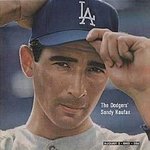|
galagazombie posted:Khrushchev was right about modern art being dogshit, even if he went on an unhinged bigoted rant about it. you hate Van Gogh and Picasso?
|
|
|
|

|
| # ¿ May 9, 2024 13:02 |
|
What are the best books about El Alamein and/or the North African campaigns? Thanks
|
|
|
|
I am going to be in a waiting room for about six hours tomorrow, recommend your favorite history book here and I swear I will read it
|
|
|
|
Fish of hemp posted:I mean, what were the good sides of cultural revolution? it's already been linked in the thread, but Dongping Han's The Unknown Cultural Revolution is very good, and Dongping Han is not a raving maoist but a levelheaded Chinese academic who grew up in the period and then returned to do research about his home province during the CR before settling down as a professor in North Carolina. Basically, his book joins his own experiences with statistical research to point out 1) while universities were closed, modern primary and secondary education were expanded exponentially - and in many rural areas including his home district, basically established for the first time 2) agricultural mechanization continued to proceed, and many rural industries and farms were receiving their first modern (or secondhand, which was still a huge improvement) machinery 3) the cultural status quo that young people were rebelling against really was bad. modern observers retroactively apply their own gripes about ultrawoke students complaining about microaggressions or w/e, and forget that lots of Chinese teachers before the cultural revolution used pedagogical methods that we would correctly identify as abusive, including hitting kids or shaming them or just generally acting like unaccountable despots also, isabella weber's How China Escaped Shock Therapy establishes a pretty interesting consequence of the GPCR -- those young party functionaries and intellectuals who were sent down to the countryside in the late 60s really did make bonds with their rural hosts, and really did learn about the intricacies of rural life and production. So, when they were back in universities in the mid 80s and thinking through the problems of market reforms for rural markets, they specifically did not listen to the foreign (Eastern European "reformers"/North American neoliberals) economists' ideas about trying to destroy all price controls at once, because they knew that specific rural systems they were personally familiar with would be disrupted tatankatonk has issued a correction as of 22:41 on Apr 24, 2024 |
|
|




